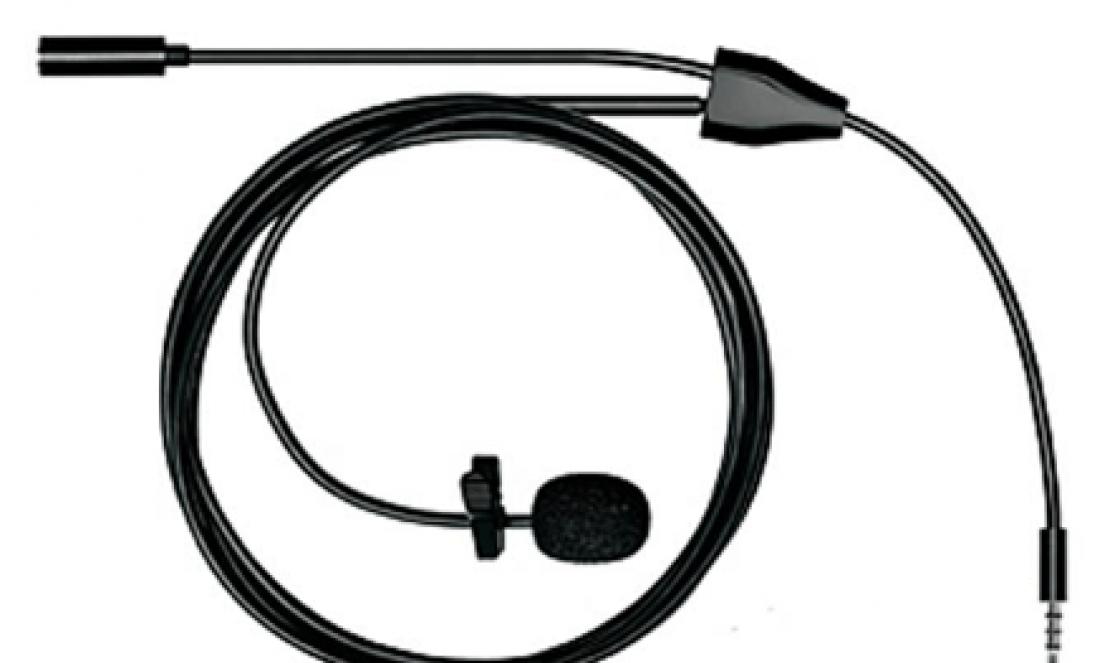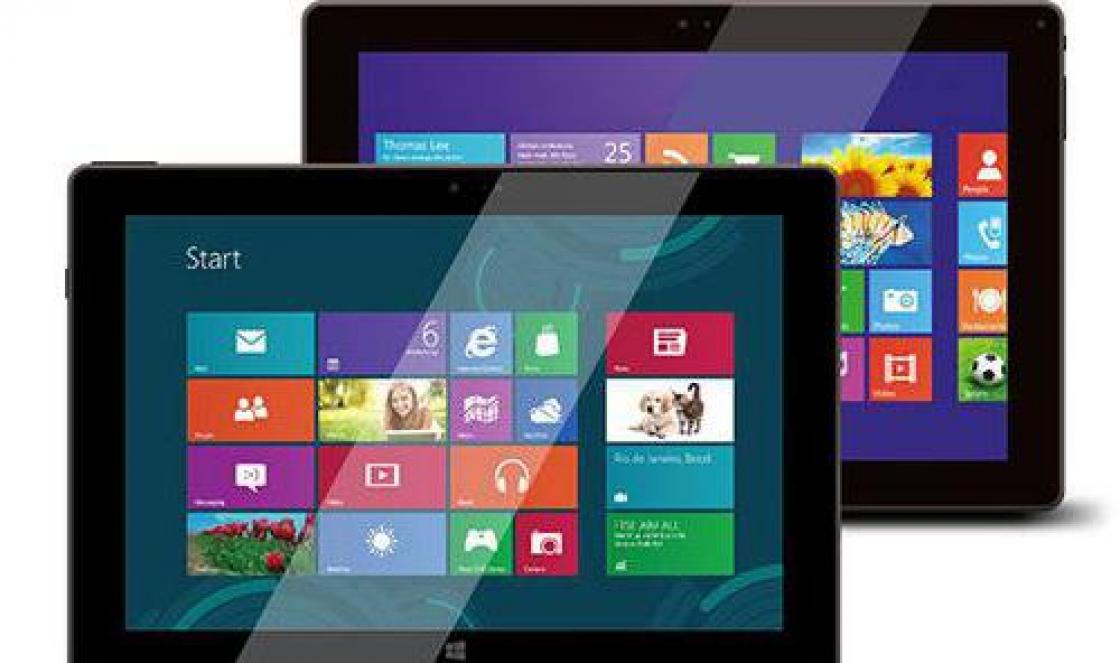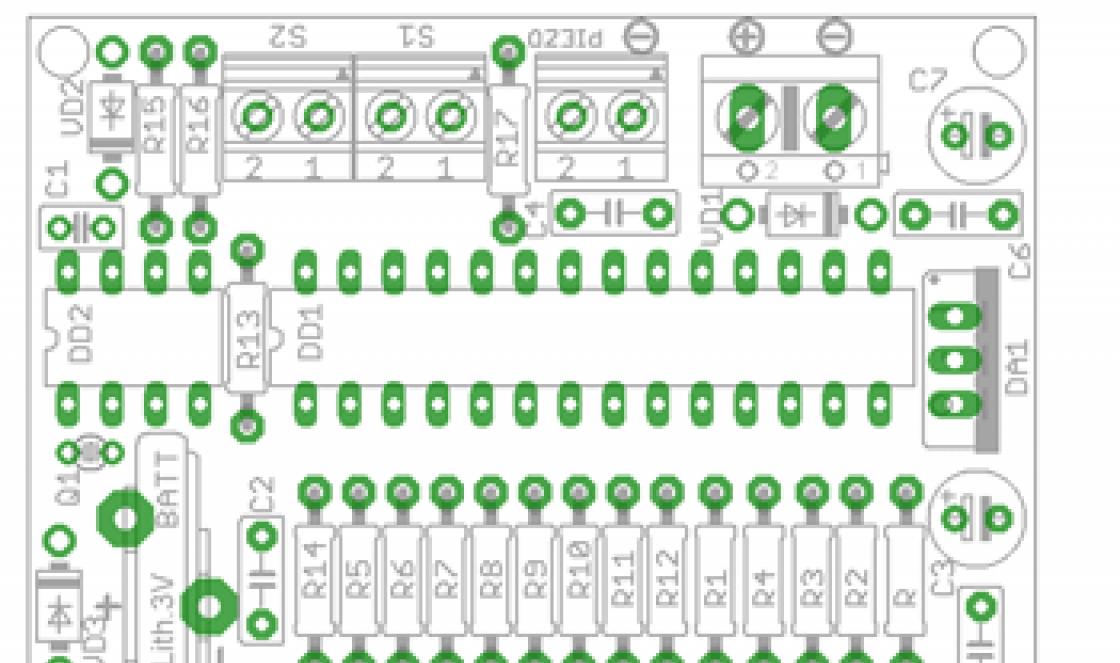The new generation of Apple TV set-top boxes went on sale last Friday, and users have been testing the “Apple” new product for several days. Many consider the updated model to be very successful thanks to the store App Store, voice Siri assistant and new operating system tvOS.
Remote control
Touchpad
- To move an app shortcut, hover over it and long-tap until the icon starts to wiggle. Then swipe left, right, up or down and move the app. Press the touchpad once to complete the movement.
- The touchpad detects scrolling speed. Use this and scroll through long lists faster.
- Move the pointer to any letter on the virtual keyboard and long press. As a result, a context menu with capital letters, special characters and the Backspace key will appear.
- Hover over any song and long-tap to open a menu with various commands Apple Music.
Menu button
- Press the Menu button once to go back.
- Quickly press the Menu button twice on the Home screen to turn on the screensaver.
- Press and hold the Menu button and Home button at the same time to restart your Apple TV.
Double-click the Home button to open the Apple TV multitasking panel
Home button
- Press the Home button once anywhere to return to the Home screen.
- Quickly double-tap the Home button to bring up the App Switcher, displaying all running applications. Swipe up on touchpad remote control to close applications.
- Press the Home button three times quickly to launch VoiceOver.
- Hold the Home button to put Apple TV into standby mode.
Siri button
- Press the Siri button to call the voice assistant.
- Press and hold the Siri button to open a list of commands you can ask Siri.
Play/Pause button
- Press the Play/Pause button once to switch the keyboard mode between uppercase and lowercase letters.
- Press the Play/Pause button once while the icons are “jigging” to remove the selected application.
- Hold the Play/Pause button for 5-7 seconds to return to Apple Music.
Apple TV Settings
Basic
- Apple TV can be renamed in AirPlay settings -> Apple TV name
- Information about the network used is displayed in the settings item General -> About this device.
- Connect universal remote controls remote control You can connect to Apple TV in the Remotes and Devices menu -> Connect a remote control. Follow the instructions on the screen.
Remote settings
- The sensitivity level of the touch panel can be adjusted in the menu item Remotes and devices -> Touch panel sensitivity.
- Triple-press the Home button to quickly access one of the Accessibility features. You can select a quick function in the settings section General -> Universal access -> Keyboard shortcut.
- The battery level of the remote control is displayed in the section Remote controls and devices -> Bluetooth.
- The Apple TV remote lets you turn on, turn off, and adjust the volume of your TV's speakers or connected speakers via HDMI-CEC or infrared. In some cases, the synchronization process occurs automatically or is configured manually in the Remotes and Devices -> Home Theater Control menu, this section is located under the “Control your TV with the remote” and “Adjust the volume” items.
I recently bought a 3rd generation Apple TV. At first glance, in 2018 this decision looks very strange. However, with the help of a set-top box that was discontinued in 2016, I solved a whole set of issues and spent pennies on it.
Now Apple TV replaces HDMI, which I've recently become allergic to, gives me the ability to listen to Apple Music on my home audio system and watch videos from my MacBook on the TV screen, and also gives me access to hundreds of TV channels.
Apple TV 3rd generation does not support tvOS- this is the set-top box on which you cannot install applications from the App Store.
It will coolly replace HDMI via AirPlay

This happened in March of this year. After a tragic event, after which I had to buy another Apple laptop to replace it and spend a lot of money on repairs, I do not use such cables at all.
After connecting an HDMI to USB-C cable to one of the four ports on the 13-inch MacBook Pro 2017, with the Touch Bar, smoke actually came out of it (like in special effects from cheap action films), I smelled burning and a feeling of hopelessness replaced me watching “The Adventures of Paddington 2”.
The laptop didn't die completely. One definitely didn't work for him. USB-C port, and the rest of the problems lay inside the “non-separable” case.
I waited 5 weeks for a replacement motherboard entirely under warranty, I was glad that the case was generally recognized as a defect, and decided to stop using HDMI if possible.
Apple TV 3rd generation turned out to be one of the cheapest but adequate options to get rid of wires and stream video to your TV or projector from your Mac via Wi-Fi.

To do this, just enable screen mirroring via AirPlay from the menu bar (if the corresponding icon is not here, go to “ System Settings» > “Monitors” and look for video replay options). It works reasonably well, you can make presentations to the public and show photos to friends.
This works similarly with iPhone and iPad. You need to select “Screen mirroring” in “Control Center” and decide on the Apple TV to which you want to broadcast all this.
Show the film on a big TV screen

Of course, all the movies you buy or rent through the iTunes Store work seamlessly on Apple TV 3. But many will also benefit from watching content from alternative sources - e.g. hard drive Mac.
This is my first personal Apple TV. Before this, I had to work with test samples or set-top boxes of colleagues and friends. Therefore, I naively believed that with the help of banal screen duplication via AirPlay, I would be able to watch my videos and offline films on a large TV screen. I was wrong.
Normal Screen mirroring is not always suitable to watch movies on the TV screen via AirPlay.
Yes, video replay will help with viewing photos and presentations. However, when the transmitted image becomes multi-colored and dynamic, high quality sound and that’s all, the Wi-Fi channel may simply not be enough - especially if your router is not located directly under the set-top box.
The solution will be direct connection Internet to Apple TV via Ethernet (there is such an option here). However, I did not plan to cover the entire apartment with wires and deliberately did not run a cable to the TV during the renovation. None in 2018 wired internet. What to do?
You need an application that will transmit via AirPlay not a copy of the screen, but a specific video that will be buffered.

Bad option: 5KPlayer (free). At one time, this video player for Mac was a great success, as it was able to transfer video and audio from iPhone and iPad to Mac screen. The opportunity is useless in my eyes, but many people liked it.
But with the advent of this function in QuickTime Player the need for 5KPlayer in this context has come to naught.
However, the player can work with Apple TV in the form we need - transmitting not a duplicate of the screen, but a video stream. This feature works without jerks or slowdowns, but it is limited only to Apple’s proprietary MP4, and this is a failure...
This may sound stupid, but I'm also confused by the player icon with greetings from the days of skeuomorphism, which it replaces all video files with if you set the application for them by default.

Great option: Soda Player (free) is another matter. This player can transfer video of absolutely any format to Apple TV without any problems.
In addition, it works with torrents without the need to download, supports SOCKS5 and can even stream video to Chromecast. The application works almost flawlessly, it has an excellent interface and a nice minimalistic blue icon.
It’s strange that we don’t have a full review of this miracle solution, and I will definitely correct this annoying misunderstanding.
The standard YouTube app works

Of course, any modern Smart TV has YouTube. On my new Tizen TVs from Samsung, the video service client is pre-installed. But sometimes I use panels without smart features, and the inexpensive Apple TV allows me to watch my favorite vlogs, reviews and news.
By and large, many today prefer not films or traditional television, but YouTube. Therefore, this opportunity on the big screen is more than relevant.
You can log into your account and get a list of subscriptions, there is a normal search and even browsing history. These There are enough options for Apple TV 3rd generation.
It doesn't have Apple Music, but it can be solved

Unfortunately, you won't be able to use Apple Music on the 3rd generation Apple TV without additional devices, even if you want to. However, this did not turn out to be a problem for me.
Stream audio via AirPlay from iTunes or from mobile device you can do it without any problems at all. To do this, just select Apple TV as the playback source, and the sound from your iPhone, iPad or Mac will immediately go to the built-in acoustics of the TV or the audio system connected to it.
On Apple TV, you can select the Now Playing menu. It shows the song title, time and album cover. You won't be able to control playback through the console itself. However, if you started music via iPhone, you can even control it using Apple Watch.
Moreover, the scope for action doesn't end with Apple Music. You can also use any other music service whichever is closer to you.
And the set-top box will open hundreds of TV channels...

When I bought the 3rd generation Apple TV, I thought, first of all, to jailbreak the console and try to get the most out of it. However, I did not study this issue in advance and was faced with the impossibility of hacking it and installing any additional software.
By and large, even a number of scenarios for using AirPlay would have been enough for me (at least for the ridiculous price of this Apple TV), but access to additional content through DNS substitution came to the rescue.
With it, the built-in applications of the old Apple TV can be turned into limitless aggregators for television channels, films and series.

Pager TV - the most legal service(from those known to us), with the help of which you can link an IPTV playlist with TV channels offered by any of the operators of your choice to an old set-top box.
Using the service costs $1 per month. But a couple of weeks of testing are provided free of charge. How to set it up?
Step 1. Turn on Apple TV - not only the 3rd generation, but also the 2nd will do
Step 2. Open Settings
Step 3. Go to the "General" section
Step 4. Expand the Network menu
Step 5.. Under WiFi or Ethernet, find the DNS setting.
Step 6 Select "Manual" under " DNS Settings" and enter: 037.230.116.189 or 062.109.022.177
Step 7 Return to the "Basic" section and place the cursor on the "Send data to Apple" item
Step 8 Open the Profiles menu using the Play button on your remote
Step 9 Select "Add Profile"
Step 10 Enter address pagertv.ru/atv and click "Add"
Step 11 Register for the Pager TV service from your computer or smartphone
Step 12 Go to the VIMEO app on Apple TV
Step 13 Log into your Pager TV personal account from your computer or smartphone

Step 14 Enter here unique code, which you see on the TV screen, and click “Save changes”
Step 15 Now go to your playlist and add a link to an M3U playlist with channels, here is a test one for 3 channels - http://pagertv.ru/test.m3u
To get started with Apple TV 4th generation (2015), you need to follow a few simple steps. A few simple steps that won't take much time.
What you will need:
Apple TV 4th generation with internal storage capacity or GB;
complete power cable;
personal wired or wireless connection to the Internet - use of public networks is not allowed;
TV, monitor or other display with an interface HDMI connections;
An HDMI/HDMI cable that is not included with the set-top box - an accessory of the required length must be purchased separately.
Connection to power source and internet
Connect the power cord that came with your Apple TV to your set-top box and plug it into an outlet.
If you're going to use a wired Internet connection, connect your personal router to your Apple TV using your Ethernet cable.
If you want to use a wireless connection, you can configure it later.
Connecting to a screen
Connect Apple TV to your screen (TV, monitor, etc.) using an HDMI cable.

If you're using an HDMI receiver or breakout box, connect your Apple TV with a cable to it, and then another cable to your TV, monitor, or other screen.
Initial setup of Apple TV
Step 1: Turn on the display you connected your Apple TV to. If the Apple TV setup screen doesn't appear automatically, set your Display Settings to the HDMI output to which you're connected to your Apple TV.
Step 2: Connect the remote control Siri Remote with one tap on its touchpad.

Step 3: Use swipe gestures on the remote's touchpad to select your preferred language, country, and region. If you select the wrong settings, go back using the Menu button.
Step 4: You can continue setting up using your iPhone or iPad, or directly from the set-top box using the remote control. The first option is preferable, since you must enter passwords and other data on touch screen more convenient.
« Configure by device»:
Make sure Bluetooth and Wi-Fi are turned on on your iPhone or iPad. Connect to Apple TV and follow the onscreen instructions.

This way, you can transfer Wi-Fi settings, Apple ID and other settings from your mobile device to the set-top box.
« Configure manually»:
To set up Apple TV 4th generation manually, you need to enter your Wi-Fi network details, login and Apple password ID.

In progress manual settings set-top box, it will go through an activation procedure, which may take several minutes.
Step 5: Define parameters public access to geolocation services, screen savers and statistics. And complete the setup by following the on-screen instructions.
So, let's immediately define what Apple TV is and why is it needed?
Let's assume a classic set of home appliances - a TV, a computer (preferably a Mac, but a PC is also possible) and an iPhone/iPad. And of course, there is WiFi at home (it is better to use an access point with 802.11n - this way the speed will be higher and the delays will be minimal), through which all home devices are connected to the same network and access the Internet. So, Apple TV can receive a signal from computers, iGadgets and broadcast the image to a connected TV. It sounds great, and in practice, when you see it with your own eyes, you are absolutely delighted!
That is, we can transfer an image of an iPhone or Mac to Apple TV - a desktop with icons, a game, a browser, in general, everything! The function is responsible for this, but it has some limitations (more on that later). In addition to broadcasting pictures to a TV, Apple TV can also be used as an independent device - watch online movies and listen to music from the iTunes Music Store. After all, everything that you once bought with your account (Apple ID) can be viewed on Apple TV. Of course, you can buy movies and music directly from the console, but entering a password is not always convenient...
Photos from the photo stream and videos from iMovie Theater can also be streamed to the set-top box, but to be honest, I didn’t bother with it and haven’t used these functions yet. Although no, I’m lying, I looked at the photos from iCloud :)
It seems that now it’s clear why Apple TV is needed, now let’s look at setting it up.
Setting up Apple TV
Setting up Apple TV is quite simple - connect the HDMI cable to the TV, and the power cable to the outlet - that's it, you're done! 🙂 After turning on the set-top box, a welcome window will appear and you can make small settings for the set-top box. I strongly recommend reaching the point WiFi settings, connect to the network, and then turn on the iPhone/iPad with installed program(from Apple itself), and with the help of it, finish setting up the set-top box. Believe me, entering your Apple ID and password can be very difficult from your native remote control, but typing on the iPhone/iPad keyboard is a pleasure!
 Remote
Remote After the Apple TV is activated and connected to the network, you can already use it and transfer pictures to it from your iPhone or Mac. Here there is a small limitation that I mentioned above () - you need a Mac no older than 2011, Apple TV 2 or 3, as well as an iPhone 4S and higher. If your iOS device meet these requirements, then it will be possible to enable AirPlay mode by swiping your finger across the screen from bottom to top. Try it and you will see the picture from the device on your TV! 🙂
As for Mac, there is a peculiarity - if your Mac officially supports AirPlay Mirroring, then there will be no problems, and the AirPlay icon will appear on the Mac in the menu bar next to the clock. But if it is older than 2011, then you will need to use third party applications, like AirParrot or Beamer. This is exactly the problem I encountered, because I have a MacBook Pro 15 2010...
AirParrot and Beamer
Using these applications, you can transfer a picture from a Mac (or PC) to an Apple TV. AirParrot is essentially an AirPlay clone, only with more settings.
If you are excited about the idea, then first you need to buy it (about $10), download it and run it. When you launch the program, it will appear in the menu bar, where you can click on Apple TV and the picture will immediately appear on the TV screen.
 AirParrot on Mac
AirParrot on Mac In addition to transmitting pictures, AirParrot can also transmit sound - to do this, click on Enable Audio. The first time the program complains that the required driver is not there, it’s okay - the program will install everything itself, but this will require a restart of the computer. And twice: after the first reboot, the sound still won’t appear and the program will again ask you to install the driver and restart the Mac. And after that, everything will work :) You can transfer either the entire screen or just one window to Apple TV. For example, you watch a movie on TV and work in a browser on your computer.
Mobile firmware for Apple TV of the second and third generations up to version 6.0, which introduced very useful feature, allowing owners of small black boxes to radically simplify the procedure for its initial setup. And today a company from Cupertino published a description of this opportunity in its knowledge base.
So, with the help new feature you can automatically copy network settings, data about your account Apple ID used to make purchases in iTunes/App Store, as well as regional and language settings. However, not all Apple devices support it.
This is due not so much to software limitations as to the lack of a Bluetooth LE wireless module (also called low energy). Therefore, the automatic setup feature only works on third-generation Apple TV with firmware version 6.0 or higher. Also, you will need one of the following mobile gadgets with iOS 7 “on board”:
- iPhone 4S or later;
- iPad 3rd generation or later;
- iPad mini;
- iPod touch 5G;
- Please note that iPhone 4 and iPad 2 not supported.
The automatic configuration process itself occurs in several sequential and fairly simple steps. To get started, you need to connect to the TV, turn on both devices and wait until the set-top box displays the welcome screen:
Unlock your mobile gadget and make sure that it is connected to the correct one Wi-Fi network, which will run a customizable Apple TV. The Bluetooth module on your smartphone or tablet must also be turned on.
Lightly touch your iOS device to your Apple TV and wait until the following screen appears:

- Do you remember your account password or will you have to enter it manually every time?
- send the settings to the set-top box (no iDevice parameters will change)?

If you answered yes to the second question, all you have to do is wait for the configuration and activation process to complete successfully. After this, the small black box will be completely ready for use.

Before this feature is implemented initial setup set-top box was a rather tedious task, especially if the user did not have a Bluetooth keyboard at hand. He had to type all the information one letter at a time using the remote control that came with the Apple TV.





